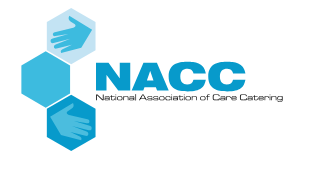A revolutionary charity which offers hospitality training to prison inmates is enjoying huge success.
The Clink operates four training restaurants in partnership with Her Majesty’s Prison and Probation Service providing prisoners with an opportunity to gain new skills and qualifications in catering and horticulture – and helping them to secure employment in the industry on their release.
The Clink’s graduates are classically trained and gain NVQs in Food Preparation & Cookery, Food & Beverage Service or Horticulture as well as the experience of working in a fine dining public restaurant which has been rated as #1 on TripAdvisor. Reoffending remains one of the most pressing challenges facing society today, but a recent Justice Data Lab report stated that a Clink graduate is 49.6% less likely to reoffend having been through one of their programmes. Finlay Scott, chairman of The Clink, said: “Today’s challenge is that there is a population of 84,000 prisoners in the UK; 80,000 men and 4,000 women.
Sadly, 49% of prisoners reoffend within one year of release and if a sentence is less than 12 months, that figure rises to 66%. “With a huge skills shortage in the hospitality industry and reoffending costing a total of £15billion a year, training and equipping serving prisoners with key skills, confidence and qualifications is a priority and integral to reducing reoffending. “By transforming the lives of prisoners and Clink graduates it not only benefits them but also their families and victims of crime and society as a whole by reducing crime rates and encouraging meaningful employment.”
“In the short a time that Fahima has been with us, we have seen her confidence in the job and the team grow. Her skillset of knife-handling and cooking is improving every day which will mean there is opportunity for her to be promoted if she keeps up the good work. Fahima has, in a short time, become an essential part of the team at Caravan.” – Shane Pearson, head chef, Caravan Restaurant.
Hospitality businesses are being encouraged to consider employing ex-offenders, and here are some of the most commonly-asked questions:
How much am I entitled to know about the offence that the Clink graduate committed?
Employers can ask people to volunteer information about criminal convictions which have not been spent but when a conviction has become spent, an ex-offender can decline to volunteer this information the employer has special rights to ask for it. The Clink’s policy is to ask the graduate to write a disclosure letter to their potential employer outlining their crime and more importantly, their rehabilitation and hopes for the future.
Are there risks if I employ an ex-offender?
There are risks to employing any potential staff member, not just ex-offenders. The prison service has very stringent security checks to ensure that it offers appropriate trainees for The Clink to interview and consider taking on in the first place. You will know (with the graduate’s permission) more about him or her than any of your other employees which can only be a good thing.
Should I tell the team who will be working with the graduate that they have a criminal record?
No. You are legally obliged to ensure that information regarding offences is kept confidential unless there is a specific reason for disclosing it.



